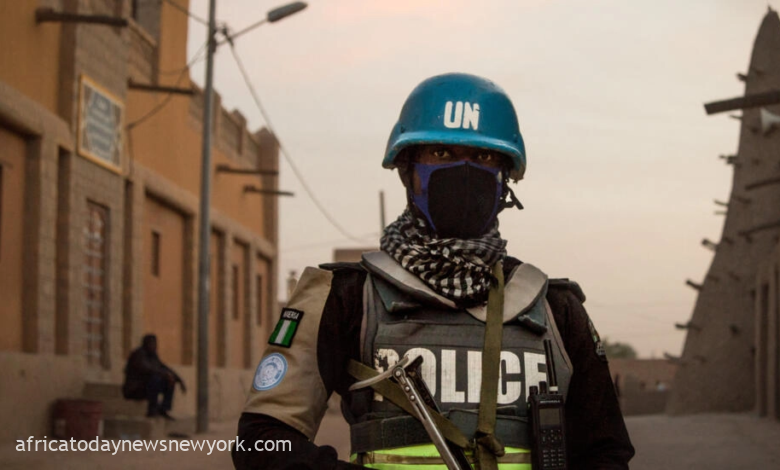The United Nations have explained that it had to pull its peacekeepers out of a camp in northern Mali earlier than planned, because ‘their lives were in danger’ and they could not risk it.
It says its last convoy left the camp in Tessalit on Saturday. Mali’s military leaders, who ordered the withdrawal of all UN and French troops earlier this year, says the Tessalit camp is now in its control.
Saturday’s withdrawal happened ‘in an extremely tense and degraded security context putting in danger the lives of personnel’, said the UN peacekeeping mission in Mali, Minusma, in a statement which was sighted by Africa Today News, New York on Monday.
Read Also: Gambari Reveals How Obasanjo Missed UN Secretary-General Role
With fewer international troops on the ground in Mali, it is feared that the country will be subject to worsening violence from powerful armed groups – including Islamist militants and Tuareg militias.
Africa Today News, New York recalls that Mali had earlier told the UN that its 12,000 peacemakers need to leave, after 10 years countering Islamist militants in the country.
Sometime in 2022, France withdrew its forces after military leaders seized control of Mali and brought in mercenaries from Russia’s Wagner group.
In 2013, the UN launched a mission after separatist rebels and Islamist fighters banded together and occupied northern Mali. They hoped to create a separate state.
The UN peacekeepers arrived after 5,000 French troops, who were sent to try and put down the uprising.
The threat from Islamist militants, who have killed several thousand people and forced tens of thousands from their homes, has continued over the years.
While the UN force in Mali has a wider brief to protect civilians and contain the jihadist threat, it is not intended to go on the offensive against militants.
In Mali and across the wider region attacks have been carried out by Islamic State in the Greater Sahara and an al-Qaeda affiliate called Jamaat Nusrat al-Islam wal-Muslimin.

